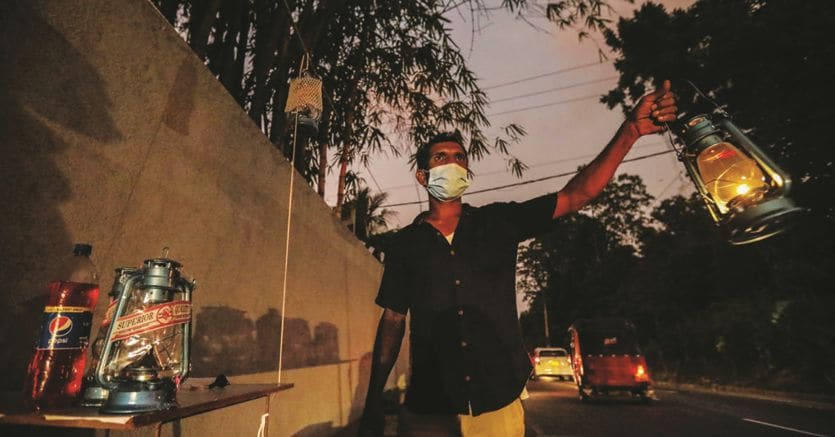“Gota go home”. “Gota go away.” Gota is Gotabaya Rajapaksa, president of the Sri Lanka, a member of the family dynasty that has dominated the country’s politics and economy for nearly 20 years. His brother, Mahinda, is the prime minister. Two other brothers from Gotabaya were members of the government until about ten days ago, when the entire cabinet resigned: Basil Rajapaksa in Finance, Chamal in Irrigation. Namal Rajapaksa, son of Mahinda (he remained in his place), was Minister of Sports.
Inhabitants more and more exasperated
Shouting “Gota go home” are the increasingly exasperated inhabitants of Sri Lanka, who blame the president’s clan for the worst economic crisis since independence. The foreign exchange reserves are now exhausted: at the end of March they fell below 2 billion dollars, but according to some sources, they were now just 600 million, enough to cover more or less a week of imports.
It is the default: on April 12, the authorities surrendered and announced the stop to the repayment of the foreign debt, both the bonds and the bilateral loans obtained by governments and international institutions. “We need to focus on essential imports and we can’t worry about servicing foreign debt,” said Central Bank Governor Nandalal. Weerasinghe.
Negotiation with the International Monetary Fund
After painful prevarication, the ultra-nationalist executive is preparing to negotiate a debt restructuring program with the IMF. Contacts have already started. Will be facilitated by change at the helm of the Central Bank: Former Governor Ajith Nivard resigned last week Cabral, which opposed to the end the request for intervention by the IMF, considered a wound to the sovereignty of the country. Weerasinghe, who replaced him, is an orthodox economist with a background at the Fund. On the day of his inauguration, April 8, the Central Bank raised rates by 700 basis points, doubling them to 14.5%.

Over the past 15 years, the country has seen foreign debt soar to 65% of GDP. In 2022, it has approximately $ 4 billion in debt maturing, including a $ 1 billion international sovereign bond due in July. According to Fitchan additional $ 2.4 billion will be needed to repay debts incurred by state and private companies.
